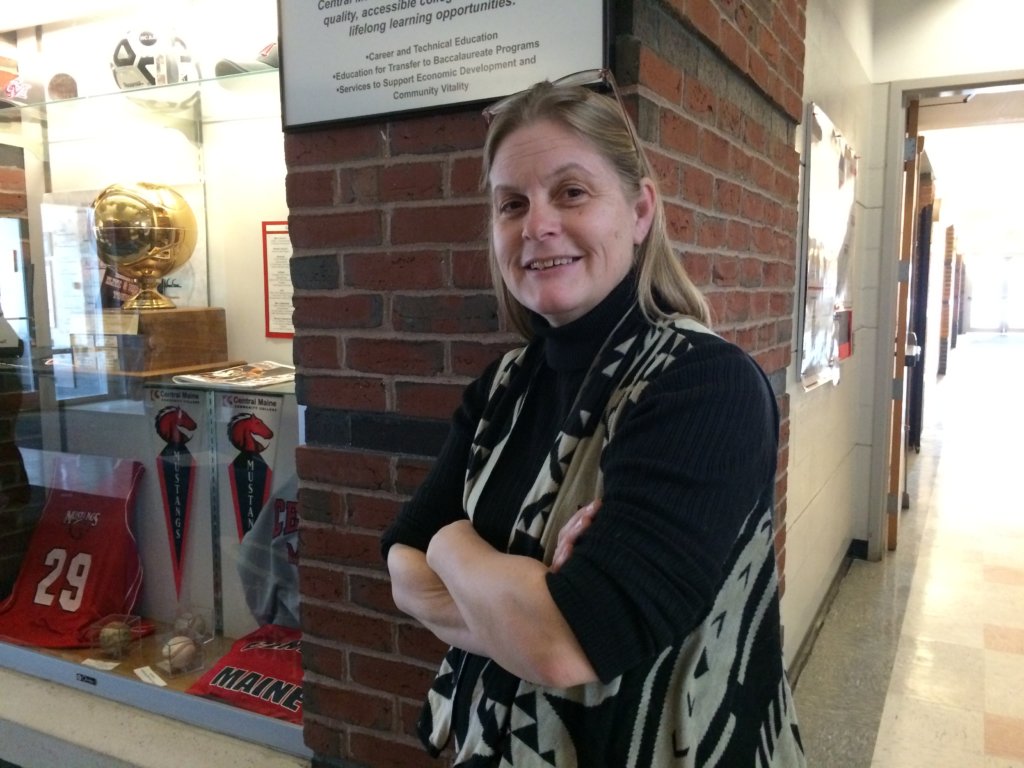AUBURN — One of the companies Prudence Pease works with in Vermont offered a paid gym membership to employees. She pointed out that it wasn’t much of a benefit to the single mothers who had neither time nor the child care to get to the gym.
For the same price, they could offer a share in a community supported agriculture program from a local farm, but that farm was 15 miles out of town and no bus service ran to it.
Today, that farm comes to the company on Friday afternoons, sets up, and workers grab their vegetables on the way out the door.
Pease was at Central Maine Community College on Friday talking to 100 local business, nonprofit and church leaders about understanding the challenges and workarounds of a workforce facing tough times.
The talk was based on the book “Bridges Out of Poverty” by Ruby K. Payne, Philip DeVol and Terie Dreussi-Smith.
“Everything about Bridges is understanding why people do what they do,” said Pease, who shared that she has eight children and received welfare for 18 years.
She’s a former senior assistant judge and now a consultant embedded with 10 companies in Vermont to help them help their staff.
Highlighting just one barrier to steady employment, transportation, Pease flagged nearly a dozen potential issues.
If they own a vehicle, “Is it legal? Is it safe? Do I have a car seat? Do I have a license or do I have to hide from the police?” Pease said.
If they need to rely on public transportation: “Does it go where I need it to go when I need it to go?”
Working with pediatricians at Dartmouth-Hitchcock Medical Center, she asked for their No. 1 patient gripe.
“‘I hate when my patients show up late,'” they told Pease. “I sent them out to use the public transportation system. They are doctors. When we got back together two weeks later, they said, ‘Oh my god, I was late to every appointment that I had this week.’ Every action takes five to seven times longer” when navigating poverty.
In another example, she said employers might not realize the time it takes to apply for aid such as heating assistance. Where she lives, it’s a 90-minute drive to the right office, a first-come-first-served wait and often takes two days to complete an application.
To the employer who doesn’t know all that, Pease said, employees who aren’t back in an hour or two simply look like they’re slacking off.
Pease’s daylong program was organized by Community Concepts and the Lewiston Auburn Metropolitan Chamber of Commerce, which has flagged workforce development as one of its issues for 2018.
Candace Sanborn, chief marketing officer at Community Concepts, said many business people come at hiring from a middle-class mind-set.
“‘Here’s what we’re going to do. If we give them opportunities, they’ll take them, why wouldn’t they?'” she said. “There’s a lot of reasons why they wouldn’t, or why they aren’t successful in those opportunities.”
The Twin Cities have some of the highest poverty rates in Maine, she said, and there aren’t enough already-skilled people to fill job openings.
“We need employers to understand that they need to be part of the solution to this problem, and understanding the world of poverty is the first step,” she said. “If a company needs second- and third-shift workers but there is no public transportation or child care available at that time, they need to be part of the solution to addressing those barriers. The same is true for obtaining the skills needed for various jobs.”
Pease said in her area, it took six employers banding together and asking what they should do that brought about change. In other communities, she’s seen libraries and hospitals lead the effort.
If Lewiston-Auburn wants to work on something similar, “we want it to be driven by the community because you guys are the experts,” she said.

Prudence Pease of Tunbridge, Vermont, led an employer-focused workshop on drawing more people facing poverty into the workforce Friday at Central Maine Community College in Auburn. (Kathryn Skelton/Sun Journal)
Comments are no longer available on this story